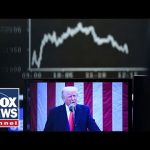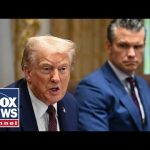This week, North Korea’s enigmatic leader, Kim Jong Un, is making headlines as he prepares to visit China for the first time in six years. This visit coincides with a grand military parade marking the 80th anniversary of World War II. Among the notable attendees will be Chinese President Xi Jinping and Russian President Vladimir Putin, making it quite the gathering of global leadership. It seems that the 80 years since World War II haven’t diminished the dramatic flair of geopolitics, and this event is no exception.
As Kim steps onto the Chinese stage, retired Brigadier General John Teicher notes that this development isn’t just about a warm welcome for the North Korean leader. Rather, it’s indicative of a burgeoning friendship among Russia, China, North Korea, and even Iran. While some might see this as a formidable alliance, the general emphasizes that it’s not yet a deeply rooted network of trust and collaboration—something the United States has managed to foster over decades. The implications of these nations coming together is sky-high, presenting challenges for U.S. foreign policy that could shake up the balance of power.
The discussion then pivots to the tensions bubbling beneath the surface. General Teicher touches on how it particularly affects the relationship between Russia and China, especially given the recent escalations in Ukraine. With a deadline looming for Putin and Ukrainian President Zelenskyy to negotiate, the stakes are high. This scenario is a classic case of balancing acts on an international tightrope, where the U.S. is encouraged to keep its eyes wide open and to be proactive in maintaining its network of allies.
In a twist, the conversation transitions to the U.S. military’s presence near Venezuela. There’s a notable rise in naval activity in the Caribbean, as U.S. guided missile cruisers and destroyers are deployed. This surge is seen as a response to the increasing influence of rogue states in the region, with Secretary of State Marco Rubio headed to Mexico and Ecuador to bolster ties. This initiative is reminiscent of the Monroe Doctrine, emphasizing a commitment to protect the U.S. hemisphere from foreign meddling. It’s a strategic move that, while firmly rooted in history, aims to display modern muscle in an era of shifting alliances.
However, the tough questions linger about the effectiveness of such military displays. General Teicher reiterates the purpose: deterring illegal activities while keeping Venezuelan leader Nicolás Maduro on guard. By asserting a strong naval presence, the U.S. aims to underline its resolve in the region, although Maduro has rallied his own forces in response. The situation is tense, as the U.S. fleet aims to disrupt narco-trafficking operations while intimating to Maduro that he needs to spend resources defending against a threat that might not actually come.
In conclusion, as Kim Jong Un prepares for his high-profile arrival in China, the global chessboard continues to shift. With countries like China and Russia strengthening ties, and the U.S. simultaneously reinforcing its own influence in the Americas, it’s clear that the game of international politics is as dynamic as ever. The players may change, but the stakes remain eternally high. As the saying goes, keep your friends close, but your rivals closer. The world is watching—and it appears this global stage is only getting busier.




